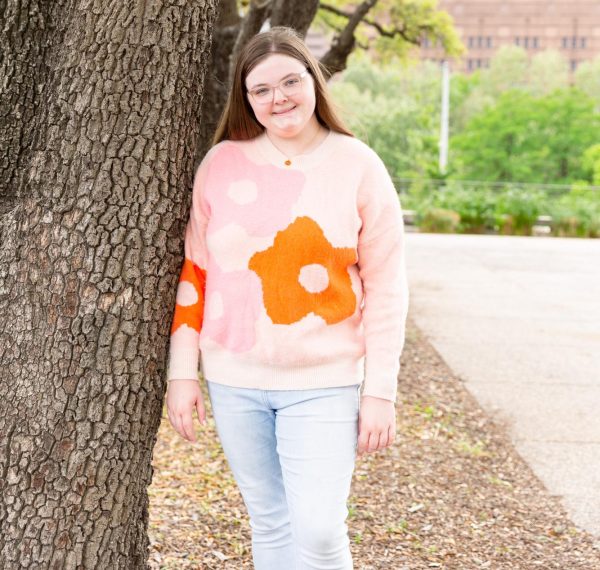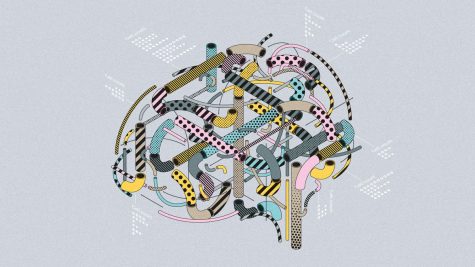A Two-Year Difference: How the Pandemic Has Impacted the Development of Infants
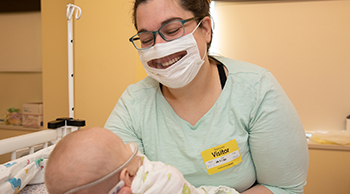
YNHCH’s Neonatal Intensive Care Unit is implementing the use of clear face masks to help newborns learn visual cues that correlate with development. (Yale New Haven Health)
May 5, 2022
Mask mandates, lockdowns, and stress all came with the COVID-19 pandemic. These changes have surely transformed adults’ lives, but could they have a greater and far more dangerous impact on children? Researchers Dani Dumitriu, Catherine Lebel, and Sean Deoni have conducted studies in their respective fields to discover the answer to that question.
Dani Dumitriu, a pediatric hospitalist at Columbia University, was the lead investigator for a study about the effect of maternal stress on newborns. She suggested parental stress may be the cause of lower neurodevelopmental stages in 6-month-olds. While some researchers such as Moriah Thomason think that this finding will not affect a generation, Dumitriu suggested that “…these small shifts warrant careful attention because, at the population level, they can have a significant public health impact.”
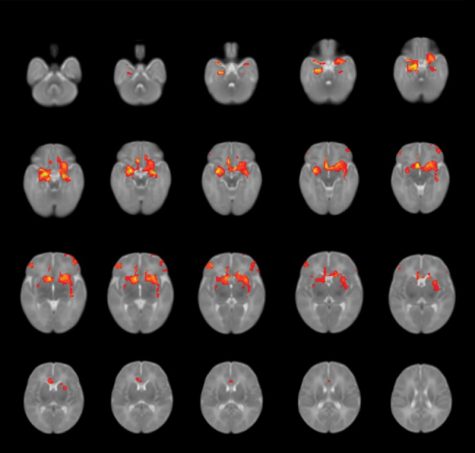
Catherine Lebel, a psychologist at the University of Calgary, studied more than 8,000 pregnant women during the pandemic. About half of the subjects reported anxiety and one-third had symptoms of depression. This percentage is well above the pre-pandemic year’s rate. By using magnetic resonance imaging (MRI) to scan the brains of 75 of the babies three months after birth, she “…found that babies born to people who reported more prenatal distress — more anxiety or depression symptoms — showed different structural connections between their amygdala, a brain region involved in emotional processing, and their prefrontal cortex, an area responsible for executive functioning skills.” Other researchers have identified a correlation between those areas of the brain and depression and anxiety.
Another study was done at Brown University by Sean Deoni, a medical biophysicist. He used an MRI and other techniques to study how environmental factors shape brain development in infants. After plotting the yearly averages and variances from the infants’ neurodevelopmental scores, he discovered that the scores during the pandemic were far lower than the scores from previous years. Deoni believes that this is due to a lack of human-to-human interactions during 2020. Another suspicion he has is that babies and toddlers did not get enough time to play with other children or soak up the benefits of using a playground. “And the unfortunate thing is that those skills kind of lay the foundation for all the other skills,” he explained.
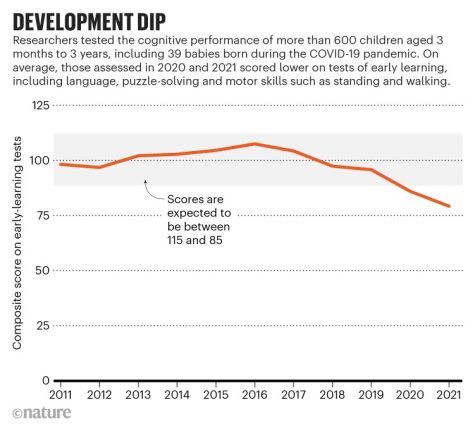
It will be interesting to see if the correlation between lagging development and the pandemic continues. Perhaps, the gap will close as the children grow and mature. These discoveries leave uncertainty for a generation, but researchers are working diligently to ensure that their future will be bright.
Work Cited
Wadman, Meredith. “Small Study Suggests Pandemic May Slow Babies’ Development.” Science, 4 May 2022, https://www.science.org/content/article/small-study-suggests-pandemic-may-slow-babies-development.
“Babies Born during Pandemic’s First Year Score Slightly Lower on a Developmental Screening Test.” Columbia University Irving Medical Center, 4 May 2022, https://www.cuimc.columbia.edu/news/babies-born-during-pandemics-first-year-score-slightly-lower-developmental-screening-test.
Moyer, Melinda Wenner. “The COVID Generation: How Is the Pandemic Affecting Kids’ Brains?” Nature News, Nature Publishing Group, 5 May 2022, https://www.nature.com/articles/d41586-022-00027-4.

